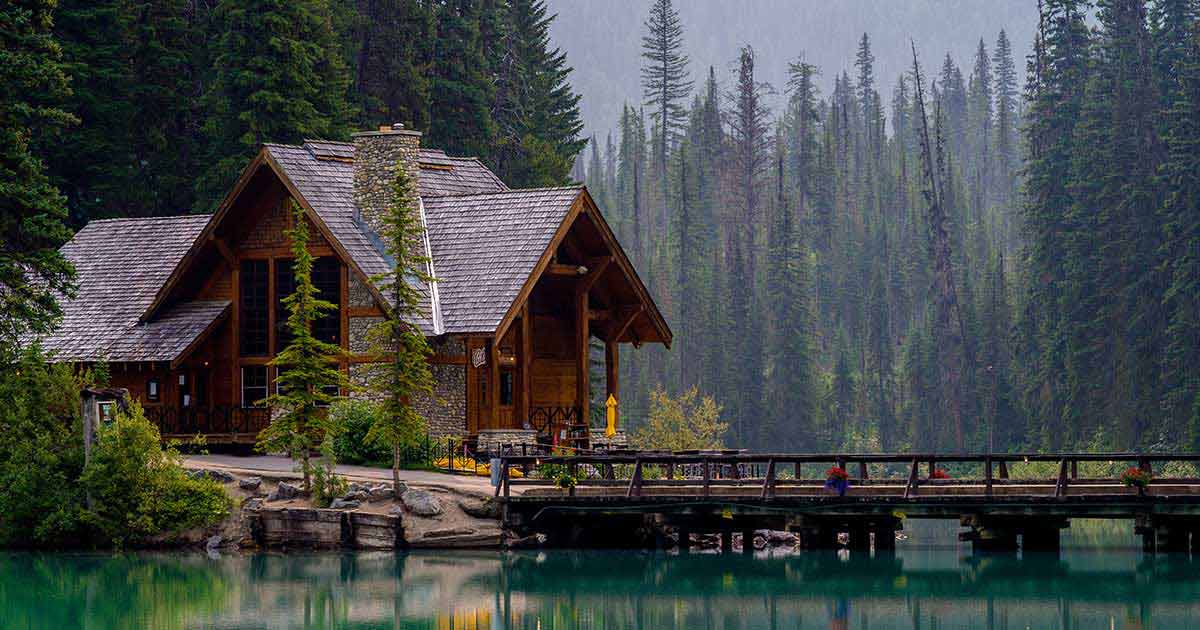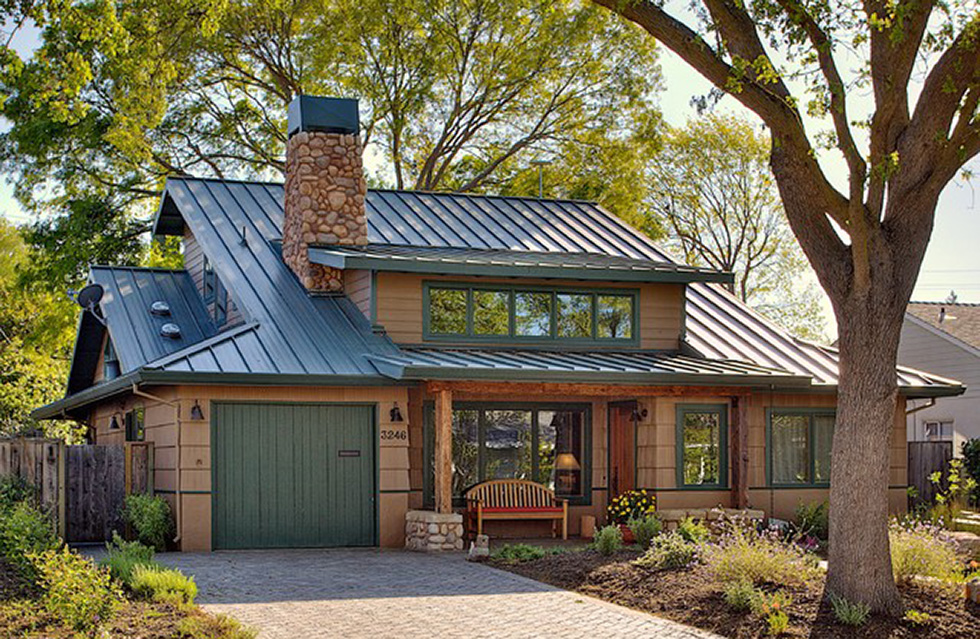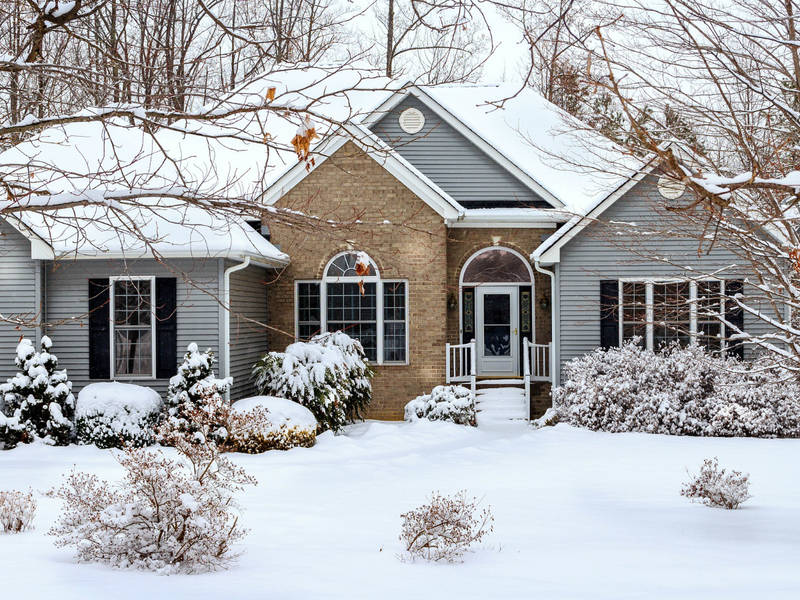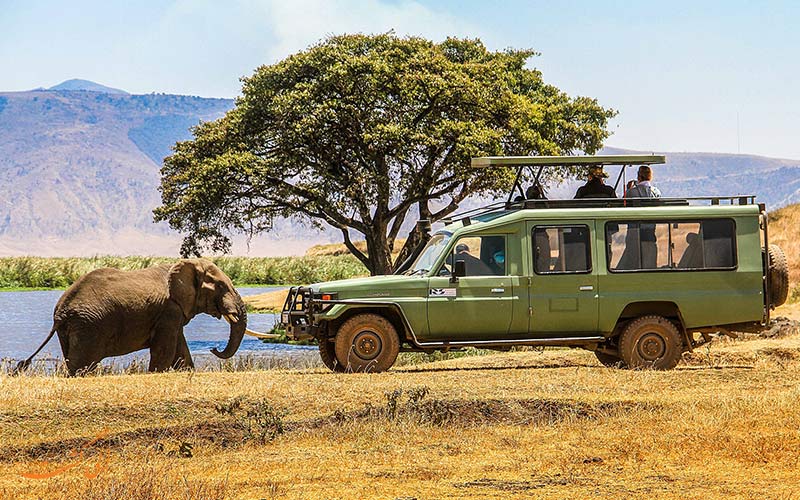Many people dream of trading in their city lifestyle (and all the stress that comes with it) for a house in the country, away from honking drivers, parking tickets, and trash that litters the streets.
At first, they might long for the peace and tranquility that comes with rural life but some instantly regret it as soon as they can’t find a decent cellphone signal or order takeout.
There are a lot of things many city-folk may take for granted and it may be things you’re not willing to give up.
The country life certainly isn’t for everyone, but is it for you? In this article, we’re diving into all the critical things you need to know before buying a house in the country.
Keep reading to put your mind at ease and avoid any regret that comes from moving into your dream home. Let’s get started.
7 Things to Consider Before Buying a House in the Country
Rustic living is simple, stress-free, and nurtures your mind and soul. It could be just what a city dweller needs from time to time, but moving there permanently is something you need to seriously consider.
We’ll go over the seven most important things you need to know before committing to buying a country home. Ensure your happiness for years to come.
1.You May Have a Spotty Signal

Living outside a city and suburbs means fewer cell towers which translates directly into poor cell signal and a sad internet connection. This is a ‘make or break’ thing for most people, especially if you work from home or love to stream Netflix.
Thankfully, there are some solutions like satellite internet. Find out what your future neighbors are using or research a creative solution that gives you the connection you need.
2. Electric and Water

Something you’ve likely never had to worry about before is access to electricity. If you’re building on raw land you may not have access to utilities like electricity and water. You’ll need to account for those services and installation charges.
Even if you do have a connection, access to electrical services after a storm might take awhile. It’s important to have a backup generator, extra propane, candles, and lanterns readily available.
In the country, most homes use a well rather than a municipality for a water source, so you’ll probably need to dig your own or tap into a neighbor’s. Be sure you check the quality and water pressure before moving in or you can be in for a shocking surprise.
3.You’ll Likely Be Responsible for Maintenance

From potholes to snow removal, you’re likely responsible for your land out in the country. Most homes also need to take care of their own trash removal.
Understand what responsibilities you might have before purchasing your home and save yourself the trouble.
4.Commute Time
The commute time is a huge shock for city dwellers moving to the country. The average American commute is 26 minutes, but your’s might be longer if you move to the country.
Everything from grocery shopping to going to the doctors is a trip. Need to borrow a cup of sugar from your neighbor? You might need to drive!
This will affect your children and your overall safety as well. Here are some important questions to consider before moving.
- If your child goes to school and misses the bus, will you have time to drive them to school and make it to the office on time?
- What about after-school activities, childcare, or play dates?
- What about if you need an ambulance or need to drive yourself to the hospital?
- How close is the nearest airport?
Everything is more spread out in the country which is great for folks who love isolation and privacy. But for those city dwellers, you’ll need to ask yourself if the tranquility is worth the commute time.
5.Activities and Amenities
When you’re looking for a home in the country, you need to think about your daily life now. What are and aren’t you willing to give up?
Do you often go to a gym? Regular doctor appointments? Frequent business trips?
Access to these services is likely limited and hard to get to.
Consider life for your children too. If you need daycare services or even access to local babysitters, you might be stuck.
You’ll want to think about the activities available to your children like sports, scouts, or playdates as well as the commute time, mentioned above.
You’ll find that a lot of these things aren’t as readily available as they are in the city or suburbs.
6.Weather

Depending on where you settle, you could be in store for long and heavy winters.
That means DIY snow removal and ensuring you have plenty of supplies before a storm.
The last thing you want to do is drive 60 minutes to the closest store in a snowstorm for milk, eggs, and bread.
Rural areas are usually serviced last since the population is much smaller than urban areas. This means if your lines are down they might be down for a while so always prepare for the worst.
You’ll likely want to choose a car that is reliable and has 4-wheel drive. If you have many acres of land, you’ll have to take care of it. Be prepared to not only purchase snow removal equipment but a lawn tractor too.
7.Watch Out for Animals

Living in the country usually means living in nature, and with that comes wildlife you’re not used to.
You won’t often see a raccoon eating your garbage in the city but in the country, it’s all too common. Be sure to lock down your trashcans and lids.
Don’t feel scared if you see deer on your property or, depending on where you live, even the occasional bear! Know the wildlife around your area and learn how you can prepare for it.
Making the Move? Style It Right
Now that you’ve found your perfect house in the country and are set on moving, you can focus on decorating it appropriately.
Check out this article on styling your country home and others like it on our blog.






